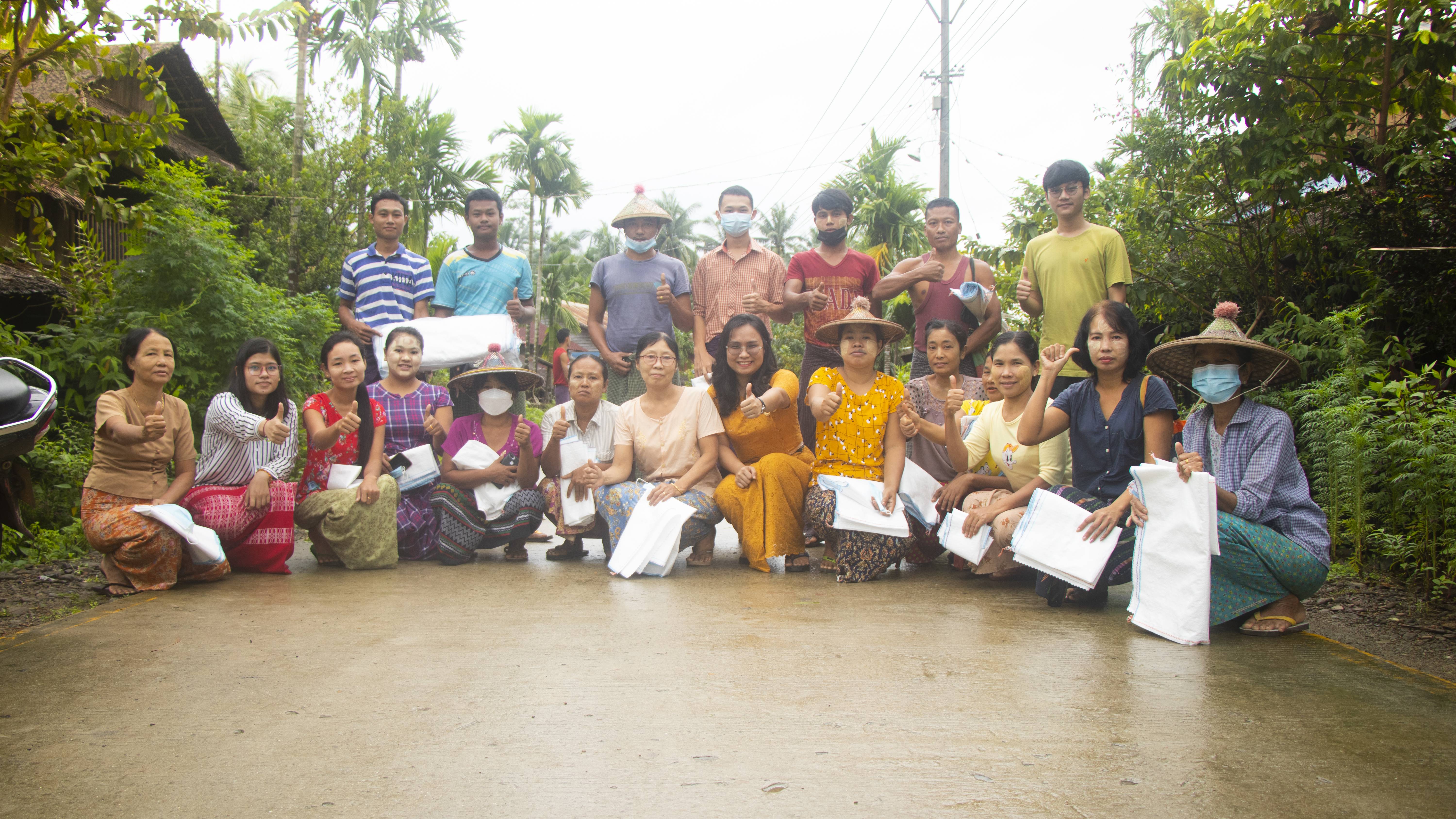
Over the past ten years, consumption patterns have dramatically changed in Myanmar, with more single use plastics being consumed and discarded, particularly in rural areas. Here, there are currently no regulations nor formal waste collection systems in place. Moreover, uncontrolled waste disposal systems and traditional waste management methods have become a major concern, contributing to soil and water contamination, air pollution, and affecting people’s health and well-being.
The EU funded SWITCH-Asia Prevent Plastics project, together with its partner, Thant Myanmar, is working with experienced waste management specialists to research, educate, train, and foster collaborations to reduce plastics pollution in the country.
From 16th to 31st October 2021, the team has brought together community members from Nyaung Chaung village, in Rakhine state to join a village-level waste management committee. Awareness-raising activities have also been spearheaded among youths, motivating them to take leadership in addressing and counteracting plastics pollution and implement responsible waste management in rural areas. Ultimately, with the newly founded committee, a fully functioning rural waste management system was successfully set-up.
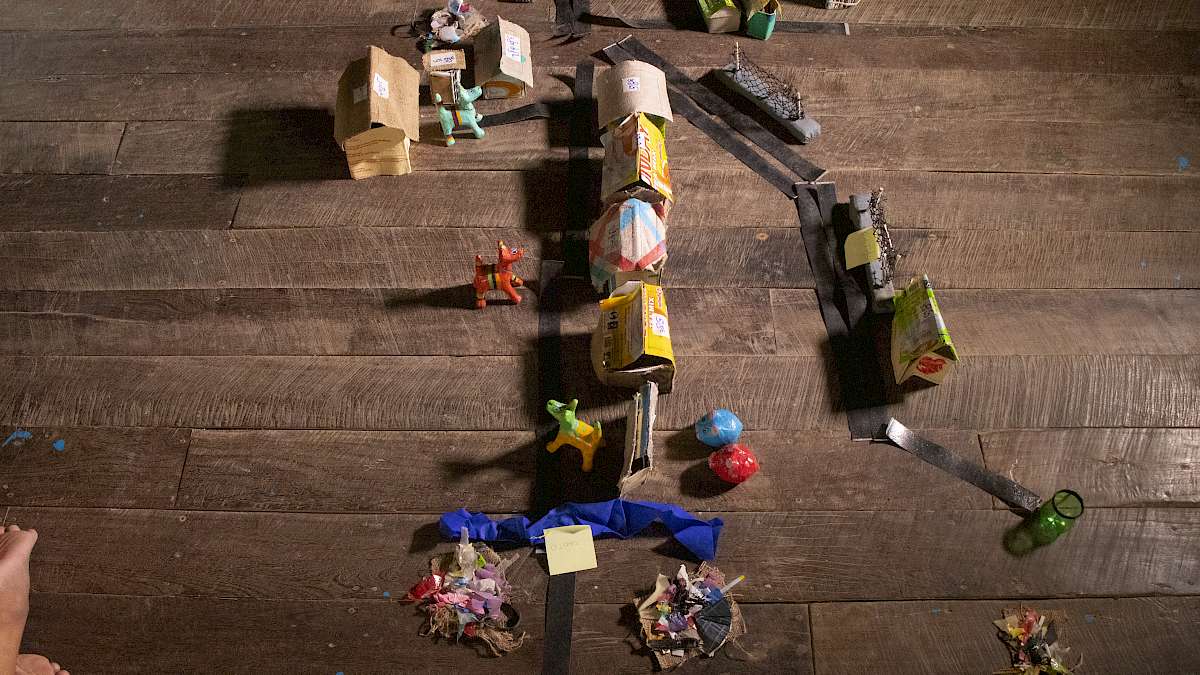
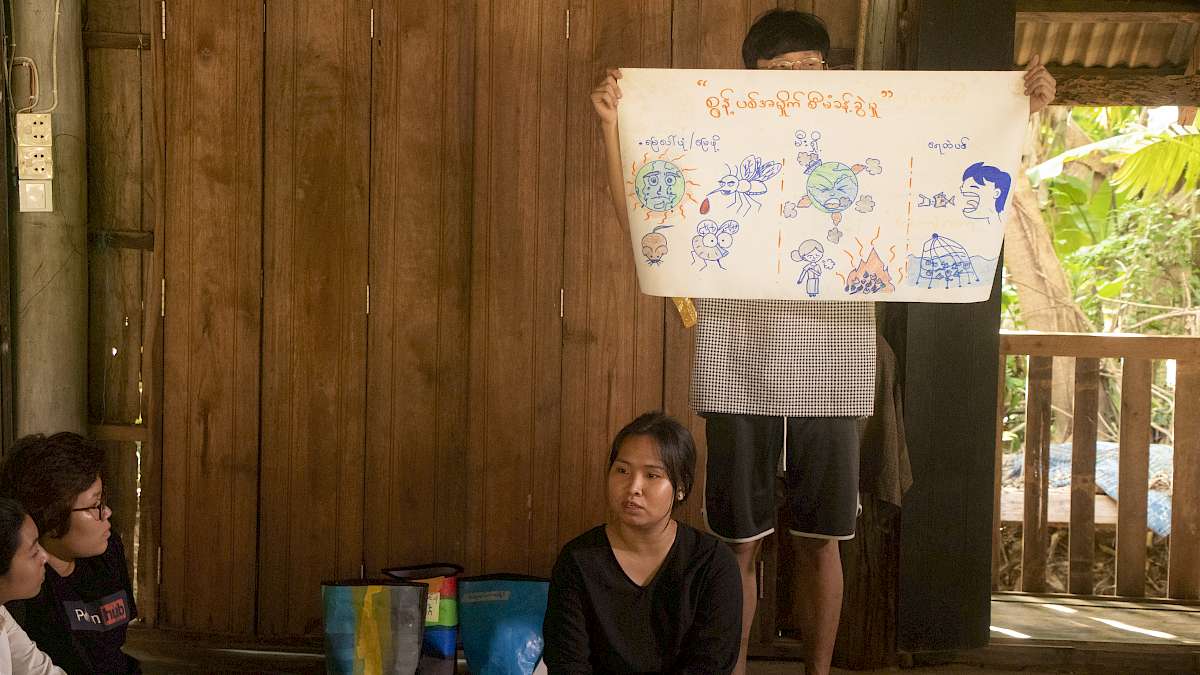
During the visit, the Thant Myanmar team also constructed an incinerator and trained local community members on organic waste treatment. Today, waste is fully segregated, and, only non-organic, non-sellable waste is dumped and incinerated, creating a very efficient system where waste can be collected every week using one 3-wheeler truck for all 160 households.
Even though there are still challenges in arranging the three-wheel to pick up the trash, the system that was set-up is greatly helping our village to manage waste sustainably. This gives us strong motivation and pride to continue on this journey, said Naing A Khant, Public Relation Representative from Nyaung Chaung Village.
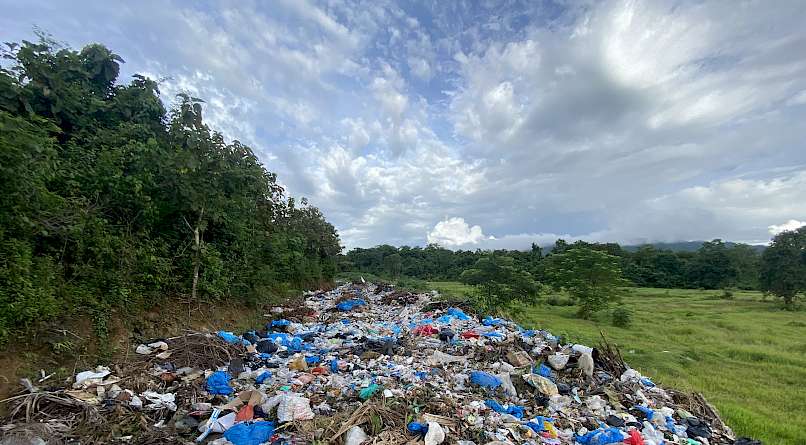
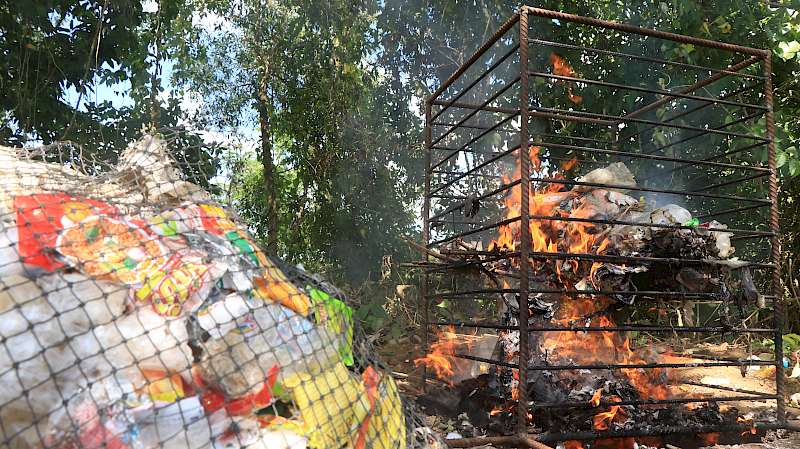
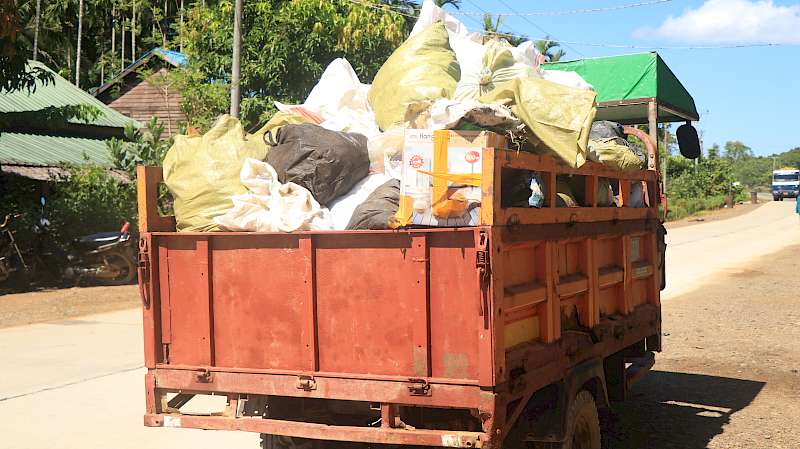
Poorly managed waste contaminates human health and livelihoods, the environment, and prosperity. An upsurge in consumption pattern is directly interrelated with a throwaway culture that calls for a fix. Embarking the steps towards rural waste management will reform the livelihood of the citizen from the rural area of Myanmar. A sustainable change can happen with consistency, support and assertive communication; from one village to over hundreds of villages, we will expand and make a SWITCH, said Denis Schaefer, Team Leader, SWITCH-Asia Prevent Plastics
As a follow-up to the work that is being conducted in the Nyaung Chaung Village, SWITCH-Asia Prevent Plastics will also develop an e-Learning Guide on Rural Waste Management.
Interested to learn more on waste management in Myanmar?
Check out these publications from SWITCH-Asia Prevent Plastics, available here
-
Consumer Awareness Survey on Plastics in Myanmar
-
3R Concept Development in Industrial Zones
- Best Practices, Waste Management Systems in Myanmar
Photo credits:
© SWITCH-Asia Prevent Plastics


